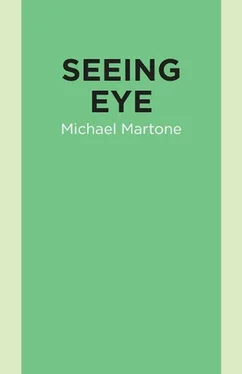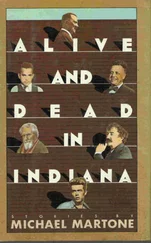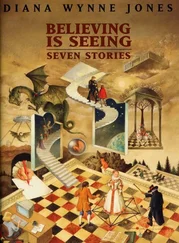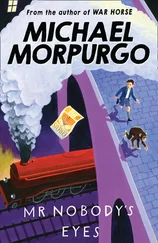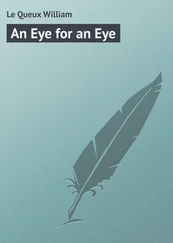Michael Martone - Seeing Eye
Здесь есть возможность читать онлайн «Michael Martone - Seeing Eye» весь текст электронной книги совершенно бесплатно (целиком полную версию без сокращений). В некоторых случаях можно слушать аудио, скачать через торрент в формате fb2 и присутствует краткое содержание. Год выпуска: 2013, Издательство: Dzanc Books, Жанр: Современная проза, на английском языке. Описание произведения, (предисловие) а так же отзывы посетителей доступны на портале библиотеки ЛибКат.
- Название:Seeing Eye
- Автор:
- Издательство:Dzanc Books
- Жанр:
- Год:2013
- ISBN:нет данных
- Рейтинг книги:5 / 5. Голосов: 1
-
Избранное:Добавить в избранное
- Отзывы:
-
Ваша оценка:
- 100
- 1
- 2
- 3
- 4
- 5
Seeing Eye: краткое содержание, описание и аннотация
Предлагаем к чтению аннотацию, описание, краткое содержание или предисловие (зависит от того, что написал сам автор книги «Seeing Eye»). Если вы не нашли необходимую информацию о книге — напишите в комментариях, мы постараемся отыскать её.
Seeing Eye — читать онлайн бесплатно полную книгу (весь текст) целиком
Ниже представлен текст книги, разбитый по страницам. Система сохранения места последней прочитанной страницы, позволяет с удобством читать онлайн бесплатно книгу «Seeing Eye», без необходимости каждый раз заново искать на чём Вы остановились. Поставьте закладку, и сможете в любой момент перейти на страницу, на которой закончили чтение.
Интервал:
Закладка:
I followed a squad down an oiled street. The sidewalks had crumbled into dust. The Kiwanis had tapped the maple trees growing along the side of the road, the sap plunking inside the tin buckets. We formed up at the end of the block, where the town met the surrounding field of corn stubble. The field went on for miles, broken only by a stand of trees, a cluster of buildings, a cloud of crows rising from the ground. We stood there waiting for something to happen. How strange and empty the world had become. In a few more weeks spring would be here for good, but you would never guess it from the way things looked. It was as if we had survived something horrible. I felt frightened and relieved. Then, the sergeant told us to saddle up and get back to town.
Later, we watched the game on a television we brought with us from the armory. The little diesel generator sputtered outside the tent. Marion won and would play again that night. We ate K rations while we watched, fruit salad in Army green tins. I saved the cherries for the last after eating the peaches, the pears, the pineapple, and the grapes in that order.
And later still, I climbed the water tower and circled the tank on the wire catwalk, looking down on the town. I saw the grid of streetlights come on automatically in patches down below. A sentry in one neighborhood waded through the puddles of light. A truck or a car would rumble up the main street and brake at the checkpoint near the square. On the wall of the water tank, high school kids had scratched their initials in the paint, coupling them with the stitch of plus signs. Now I was too close to read the huge letters of the town name and the legend that declared Marion was the Home of the Little Giants and the numbers of the years they had won the state championship. You had to read that from the ground. In my pocket was a souvenir I’d pilfered from a house below, a gravy boat from a corner cupboard. I have it still.
And when Marion won the game that night, I could hear the troops shouting that the home team had won. I watched from the platform on the water tower as all the patrolling soldiers came running from their posts to see the team cut down the nets on TV. From my perch, I looked north to the haze of light where Fort Wayne was supposed to be, recreating in my own mind the whole celebration I knew by heart.
I was floating above a peaceful Indiana in the dark. Out there, there were winners and losers. After tonight, we’d be down to the final four. I thought then, and I think now, that this is what we were fighting for.
On 911
He used to walk everywhere, Ed, the incumbent I beat for the congressional seat that got me to Washington. His campaign consisted of taking walks. He’d walk through a neighborhood in Fort Wayne, going up and knocking on a few doors, waving at cars as they passed by him. He gave out stickers in the shape of footprints and in the outline of shoes. He’d walk out into the country, out to Zulu and Avilla, Markle and Noblesville. The few reporters that trailed along tired after a few miles, caught a ride back downtown. He was a tall thin man. He slung his jacket over his shoulder, his shirtsleeves rolled up to his elbows. His pants were too short. Along Indiana 3, he’d wade through the patches of wild carrot and goldenrod. He was bombed by the angry blackbirds. He had thin hair and wore glasses with clear plastic frames. Near Leo, the Amish, who don’t even vote, passed him by in their buggies. He would stop at a farmhouse for a drink of water from a well. He’d get his picture in The Journal , the Democratic paper, kicking an empty can along the gutter in the streets of the new suburbs of St. Joe Township. He was always alone, hardly talked to anyone that mattered. No one walked anymore. His shoes were always dusty. It was a cinch.
After I won and Ed was showing me around the Hill, he refused to ride the Capitol subway over to his office. He put me onboard, and we left him behind to walk over by himself. His aides even rode with me. They didn’t bother looking back to see him shrink in the poor light of the dark tunnel beneath the streets of Washington.
He was too pitiful for words. He had more than enough rope to hang himself. The few rumors we fanned at Rotary clubs and the Zonta were enough. His skin was milky. His voice was pitched too high. He smoked a pipe. The pictures you saw in The Journal always showed him from behind, the loose white shirt draped with that summer-weight jacket. Such a target, his back exposed, brought the best out of the voters. I salivated along with my staff as we watched him walk through the fall.
His one piece of legislation was the bill that established an emergency telephone number, 911. Something a child could remember and dial. I can just imagine the debate. Who would oppose it? What could be wrong with it?
I imagine him right now sitting in his rec room watching television, perhaps the show that dramatizes the rescues once someone has called the emergency number. Every time I watch that program, I think of him in his recliner, feeling good about his public life, the stories he watches a kind of endless testimonial to his goodness.
When I was a kid, I believed in creating a kind of chronic discomfort, using the telephone to disrupt the workaday world. “Do you have Prince Edward in the can? You do? Well, you better let him out.” I dialed the numbers randomly. “Is your refrigerator running? It is? Well, you better go chase it.” I flipped through the phone book looking for funny names, calling the Frankensteins or the Cockburns. I liked transforming the telephone into something dangerous. People being startled by the bell, their hands frozen for a moment before reaching the rest of the way to pick up. My little voice, a needle in their ears, creating these anxious moments. Let him out! Go chase it! I’d make up fictions to clear the party line so that I could call my girlfriend. Or I would listen to the neighbors talking to each other, letting them know I was there. I would always be there.
A guy like you, Ed, would keep on answering the phone, would think after all the heavy breathing I’d want to talk with you. You believe in signs, in what they say. The tinkling bells of the ice cream truck would have you racing down the street. You answer the phone without a second thought. Is your refrigerator running?
Poor Ed. Everything in the world can be used, used in ways you’d never dream, used against you. Twisted. Devoured. Pulled inside out. I like to imagine you cringing in your dark rec room, the flicker of your television slapping you around, your sweaty skin sticking to the gummy vinyl of your lounger. I made you crawl. You were so easy to kick. I watched you drag yourself along the oiled back roads, the uncut ditches of Allen County, where well-bred children who hurl rocks at the Amish buggies just to hear the wood splinter took aim at you.
In the bedrooms of America, no one ever entertains the fantasy of a liberal with a whip. They desire something more, something more like me but dressed to the hilt in black uniform and patent leather, professional looking, someone who might be truly dangerous. It’s in the eyes. It’s there in the tight smile. In the privacy of their own rec rooms some people like to dress up. People like to be hurt. People like to hurt. They play out their own amateur versions of epic conflicts. Here words don’t mean the same things. Saying stop doesn’t work. Stop means keep on going. Try to imagine it. What to yell when things get out of hand, when the stimulation in these dramas exceeds the threshold of endurance? I’ve heard they scream or mutter: 911. 911. The number you invented has been absorbed into this language of love.
I hate to think about these things at all. But we live in the sickest of times. It’s still a matter of trust. Your partner will stop if you find the right thing to say. What can I say, Ed? What number can I call? It seems I can’t exist without these dramas. There are the good guys and the bad guys. I like that. Someone gets hurt. Someone does the hurting. And the bells keep ringing.
Читать дальшеИнтервал:
Закладка:
Похожие книги на «Seeing Eye»
Представляем Вашему вниманию похожие книги на «Seeing Eye» списком для выбора. Мы отобрали схожую по названию и смыслу литературу в надежде предоставить читателям больше вариантов отыскать новые, интересные, ещё непрочитанные произведения.
Обсуждение, отзывы о книге «Seeing Eye» и просто собственные мнения читателей. Оставьте ваши комментарии, напишите, что Вы думаете о произведении, его смысле или главных героях. Укажите что конкретно понравилось, а что нет, и почему Вы так считаете.
